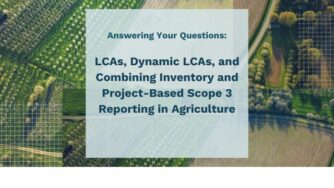Sustainability initiatives and carbon management are increasingly part of the conversation organizations are having around the impact of their business practices. The growing trend of investing in carbon credits to offset an organization’s carbon footprint builds in popularity and demand. However, organizations need to make sure they are making the right investments. A recent Agri Investor editorial article looked at the importance of how investors should look at the quality of carbon credits.
Peoples Company President Steve Bruere recently told Agri Investor, “…investors now expect strategies to include a carbon component, as carbon income potential could be factored into farmland values within two years…. this all sounds very exciting – a completely new revenue stream for an uncorrelated asset class that can simultaneously reduce ag’s significant carbon emissions is certainly a reason for excitement.”
Agriculture carbon credits are certificates that practice has removed 1 tonne of carbon dioxide from the atmosphere. In agriculture, a carbon credit is generated through broad adoption of farm management practices that replenish the soil and trap carbon in the ground, meaningful reductions in greenhouse gas emissions, and soil-based carbon sequestration improvements.
Carbon credit markets help to incentivize grower operations to reduce their carbon emissions. According to Agri Investor, “By their nature, ag-derived credits are of a higher quality due to the sustainable practice changes they encourage among farmers, the soil and nutrients run-off they help to reduce, as well as the water quality improvements the practice changes help foster.” Find out more about why organizations looking to invest in carbon credits should prioritize ag carbon credits.



